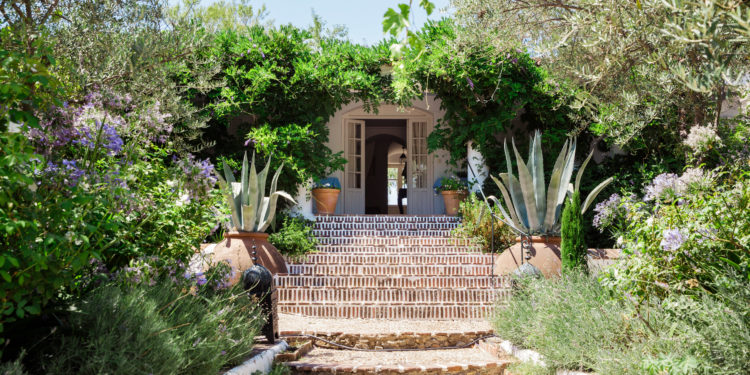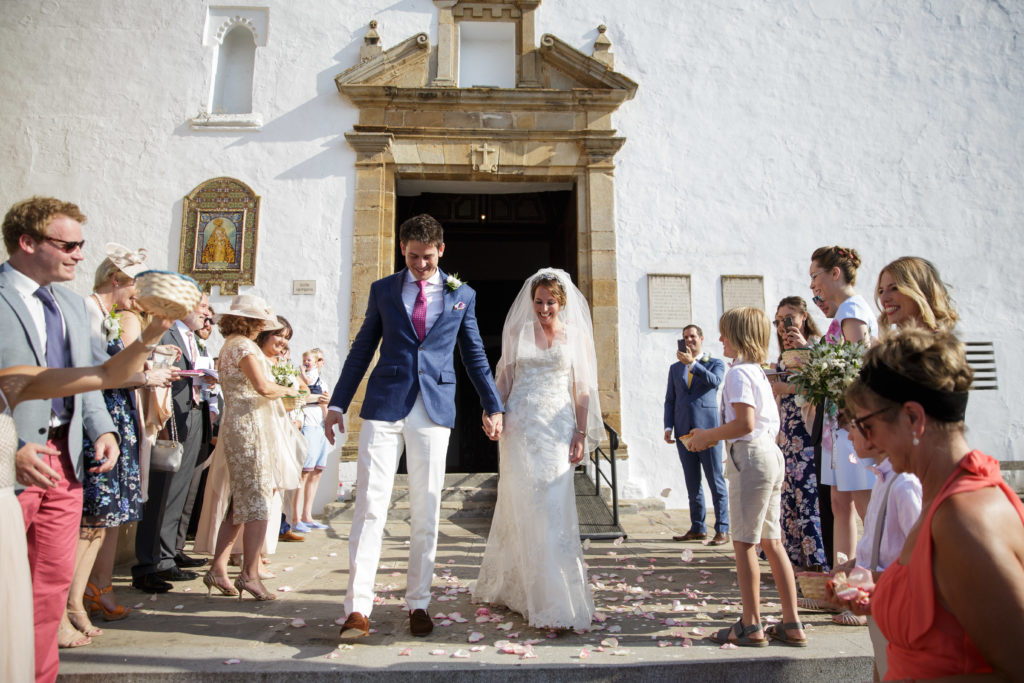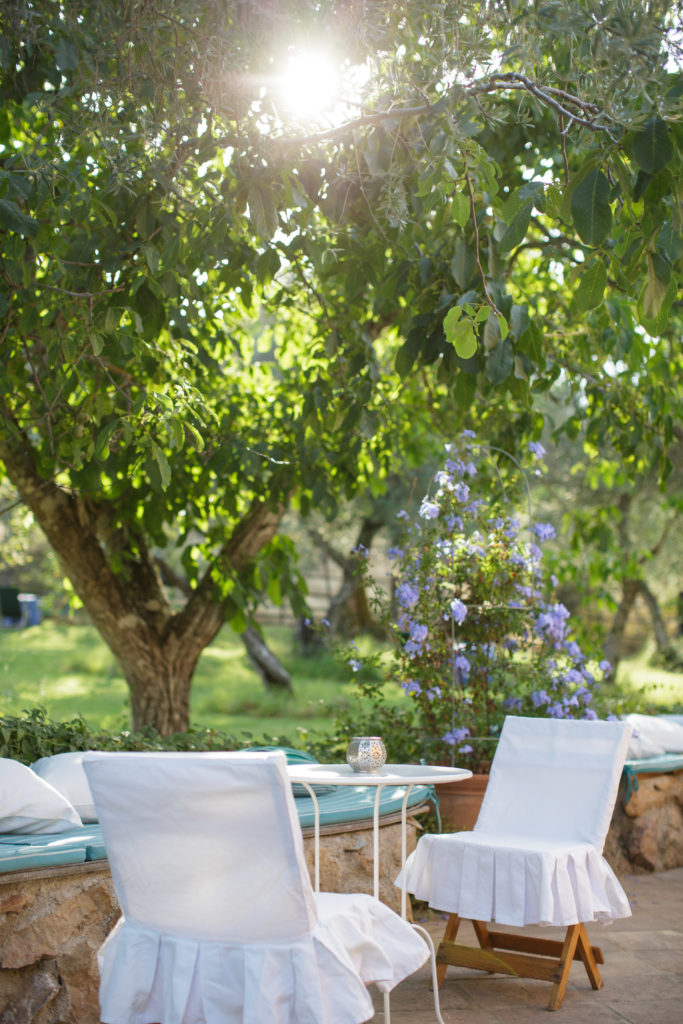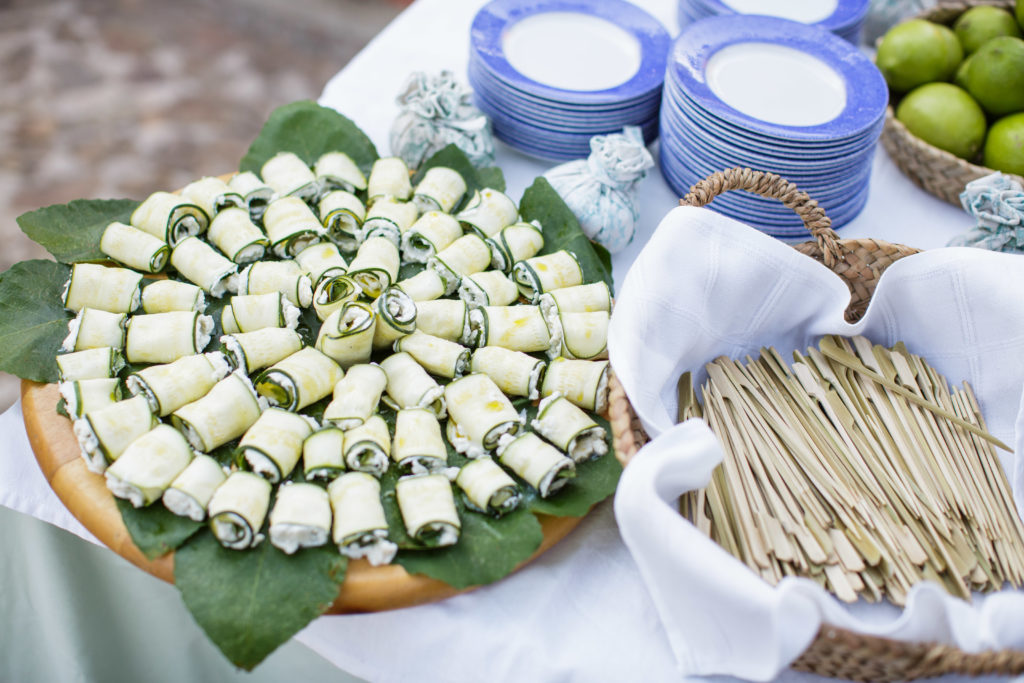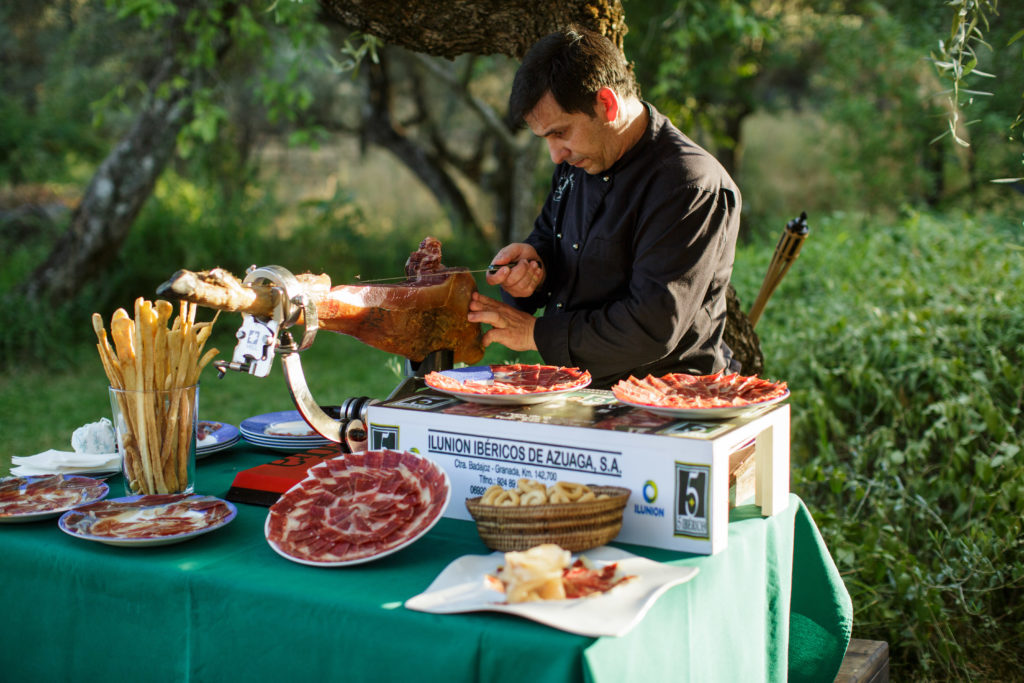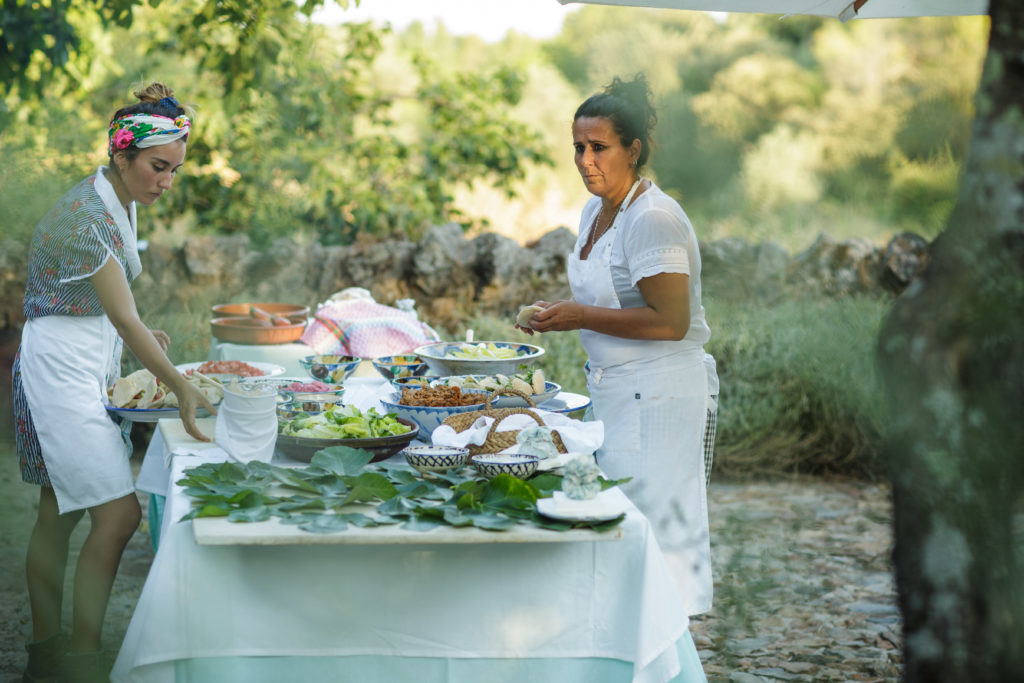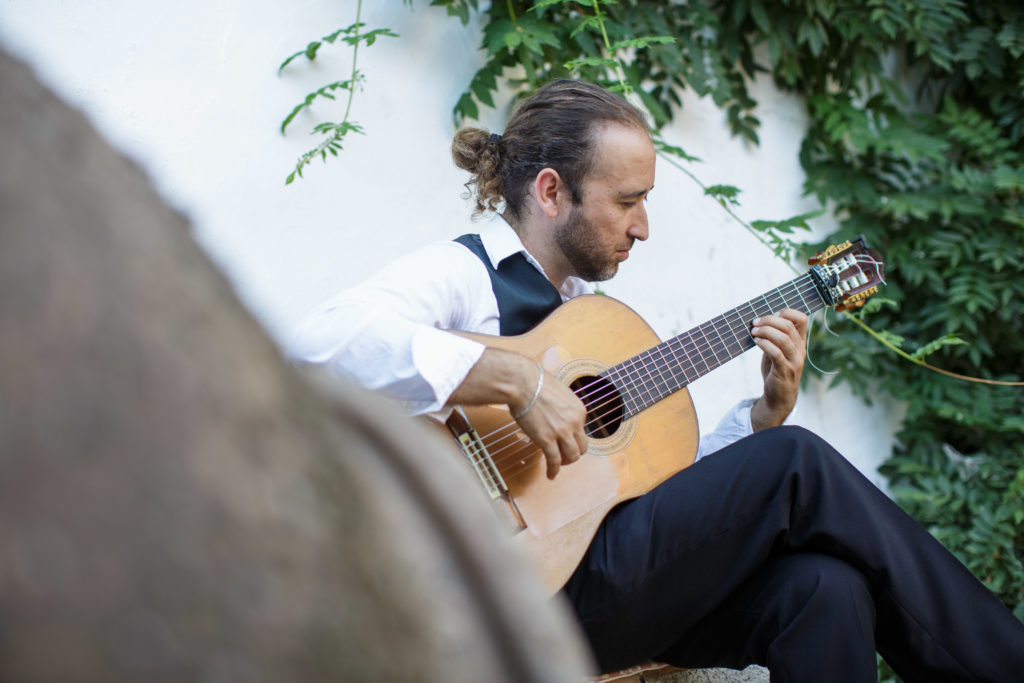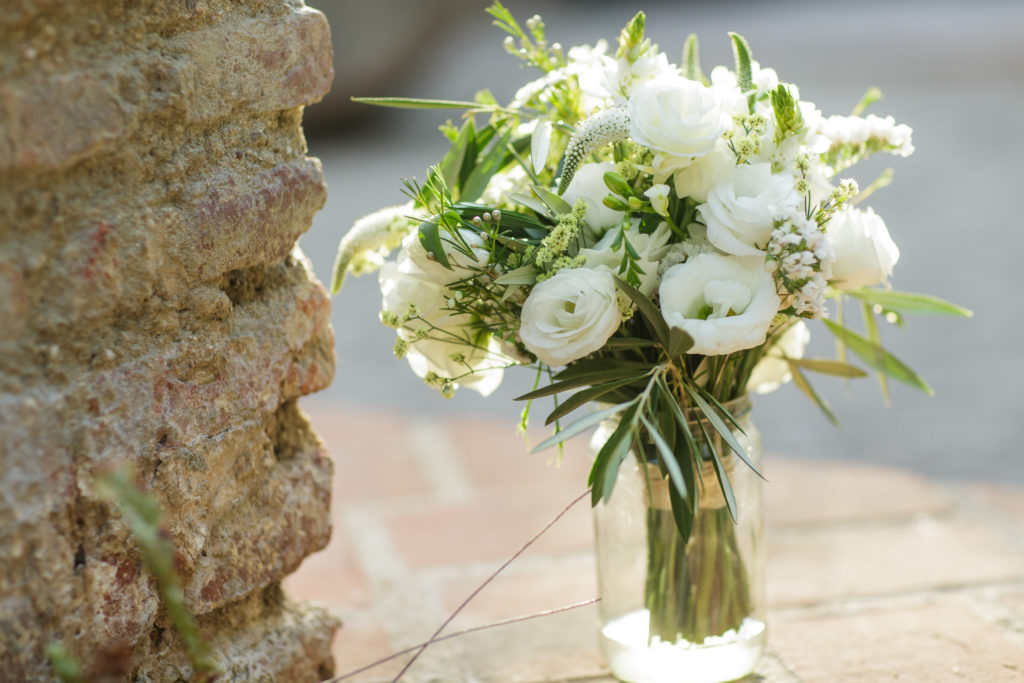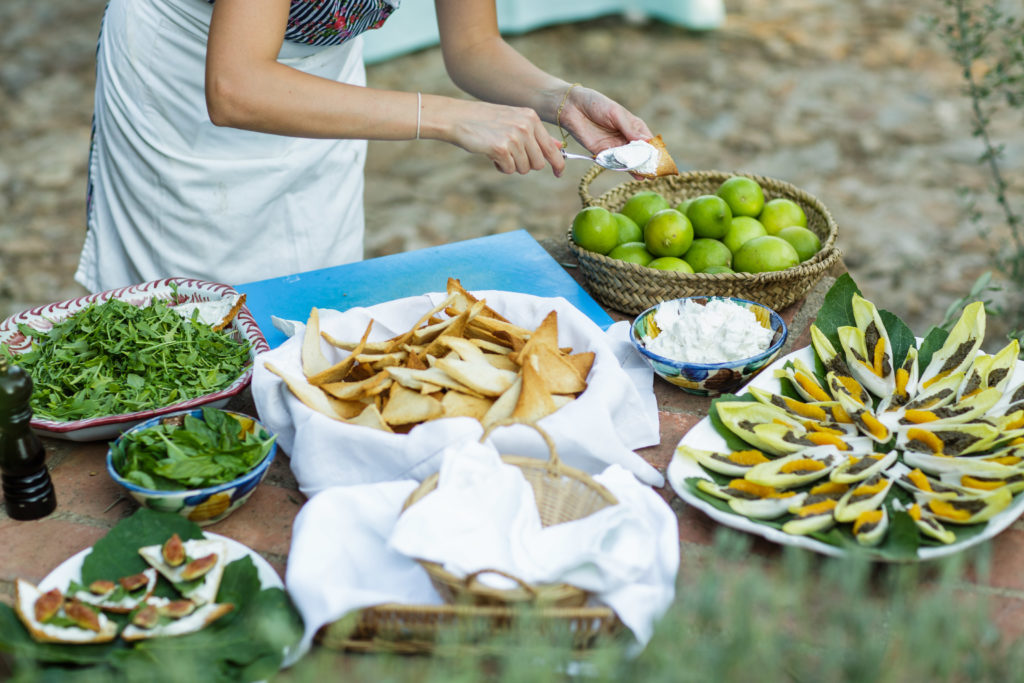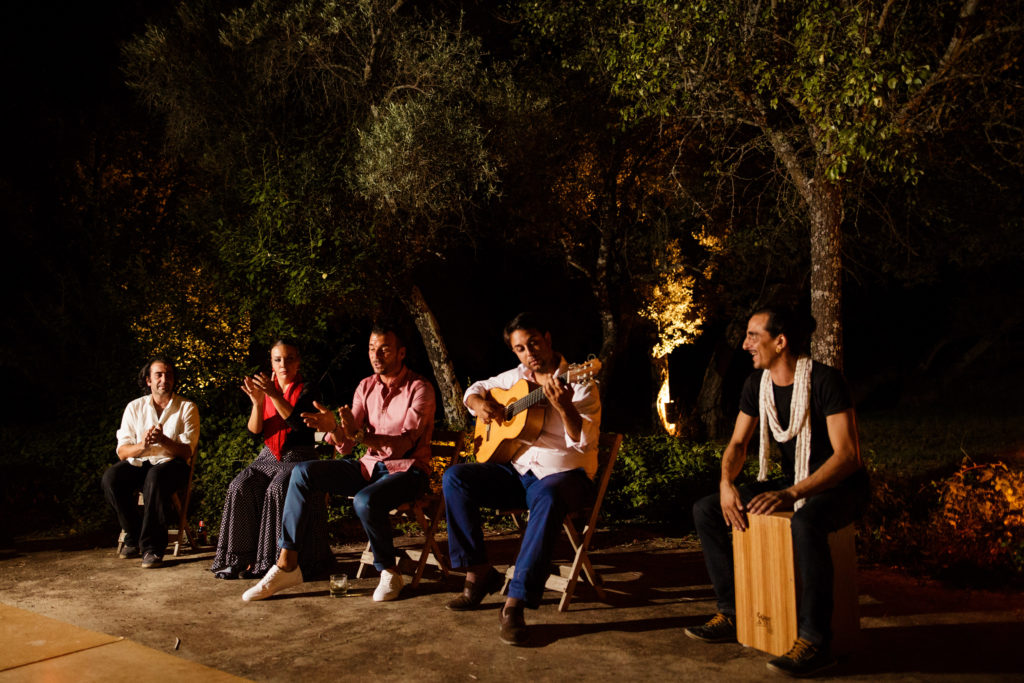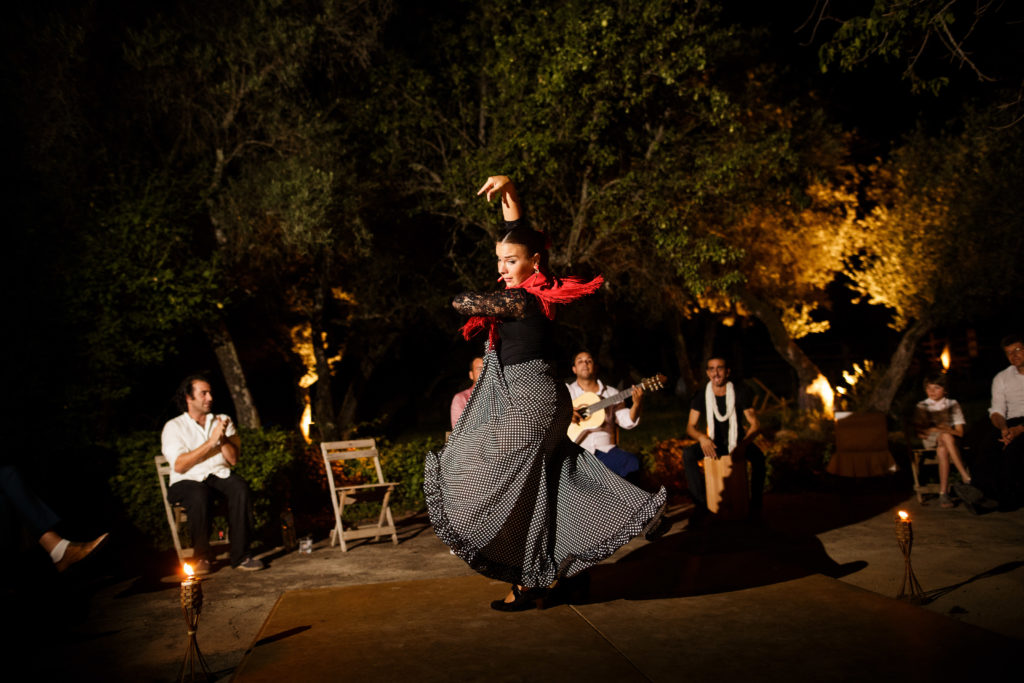I planned my wedding in Spain within 8 months; engaged in the January and married in the August of the same year. All without a wedding planner! It was hard work but absolutely worth it. I had a very clear vision and luckily a very organised fiancée. Getting married in Spain was something I’d always envisaged, my sister had married in Spain and it was beautiful. Being half-Colombian, I feel connected to Spain through my Hispanic roots and growing up I’d spent a lot of time there. My husband and I both wanted an intimate wedding with a relaxed, family feel; something different and less formal to the traditional English wedding. We loved the very simple idea of family and friends getting together to enjoy the day with us, somewhere warm and sunny and faraway from day-to-day life. Simplicity, beauty and escapism alongside good food and wine – all of which Spain offers! As soon as we set foot in our chosen venue, La Trasierra, we knew it was perfect for our wedding and it even smelt like my grandmother’s finca in Colombia. We loved our Spanish wedding and would thoroughly recommend it! Here’s your guide to Planning a Wedding in Spain
Getting Married in Spain Legally
The very first thing to consider about marrying in Spain is that if you or your fiancée are not Spanish citizens, marrying legally is a difficult process. There are only two ways:
- For a civil ceremony (unless you are Spanish) one of you will need to have been living in Spain for at least 2 years to qualify for residency
- Through the Catholic Church
The Catholic Church
Marrying in a Catholic Church requires at least one of you to be Catholic. Be warned, this is an arduous process involving a lot of paperwork but it can be done. You will need to liaise with your priest in your diocese in the UK alongside the priest in Spain at the Church you wish to marry. The exact requirements are individual to the priest, diocese and region but paperwork such as a certificate of no impediment (CNI), martial status certificate, birth certificate, baptism/communion/confirmation certificates are all things you will certainly need. If you choose to marry in a Catholic Church, starting this process must be your priority as it can take many months.
You must officially register your marriage within one week of your wedding at the local civil registry office. (Do bear this in mind if you’re planning a honeymoon elsewhere afterwards as the offices have set opening hours.)
*Do note that not all priests speak English, you may wish to clarify if the service will be conducted in English or Spanish and whether you need a translator. The same goes for the process and the paperwork, if you are not using a wedding planner and you do not speak Spanish, ensure you have someone available who does. The church will also expect a generous donation.
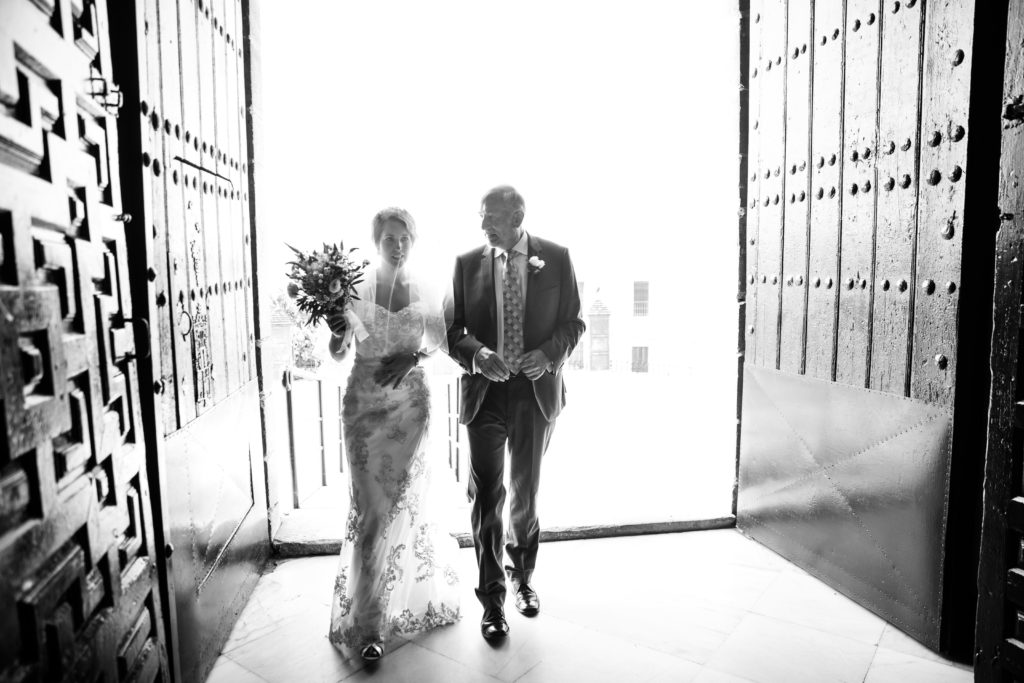
A Civil Ceremony
The majority of couples opt for a civil ceremony in the UK and a blessing ceremony held in Spain.
Helpful Links
UK Government Guide to Getting Married Abroad
Main Civil Registry Offices in Spain
Research, Research, Research: Start by Choosing a Region
Spain is a big country so it’s best to hone in on a region first before finding a venue. Are you imagining a charming, rustic finca up in the hills or a boutique city hotel overlooking the beach? If it’s the former, a hidden gem in Andalusia might be for you or if it’s the latter, perhaps an exclusive hotel in Barcelona. Consider the reasons you want to get married in Spain such as:
- Weather
- Coast
- City
- Countryside
- Culture
- Family Connections
- Food
If weather is one of your biggest factors, choosing the North of Spain in Spring might not be ideal – it does rain in Spain after all! Write a list in order to prioritise to help narrow it down.
Vision Board
Alongside deciding on your region, create a vision board and make sure your visions are aligned. Really discuss in depth what you both want otherwise it’ll only create arguments later. This is worth doing before visiting any venues so you aren’t wasting time. Also plan:
- Budget
- Rough guest list for numbers
- Ideal time of year
Choose a Venue
Book a trip to Spain! Ensure you’ve booked your viewings well in advance, a lot of the small venues are closed in the winter months. On a Monday the smaller venues, shops (such as florists, cake shops) and registry offices tend to close too. Allow an extra few days at the end of your trip in case you want to revisit any of the venues.
Points to consider:
- Accessibility and distance from the airport
- Availability on your date
- Wheelchair access if needed
- If marrying in a church, is it nearby
- Can the wedding venue host the entire wedding party/offer exclusivity
- Does the venue reflect your vision
- Make sure to stay in your venue before confirming, places look and feel very different at different times of day
- Will they help you organise the day or do they work with a wedding planner
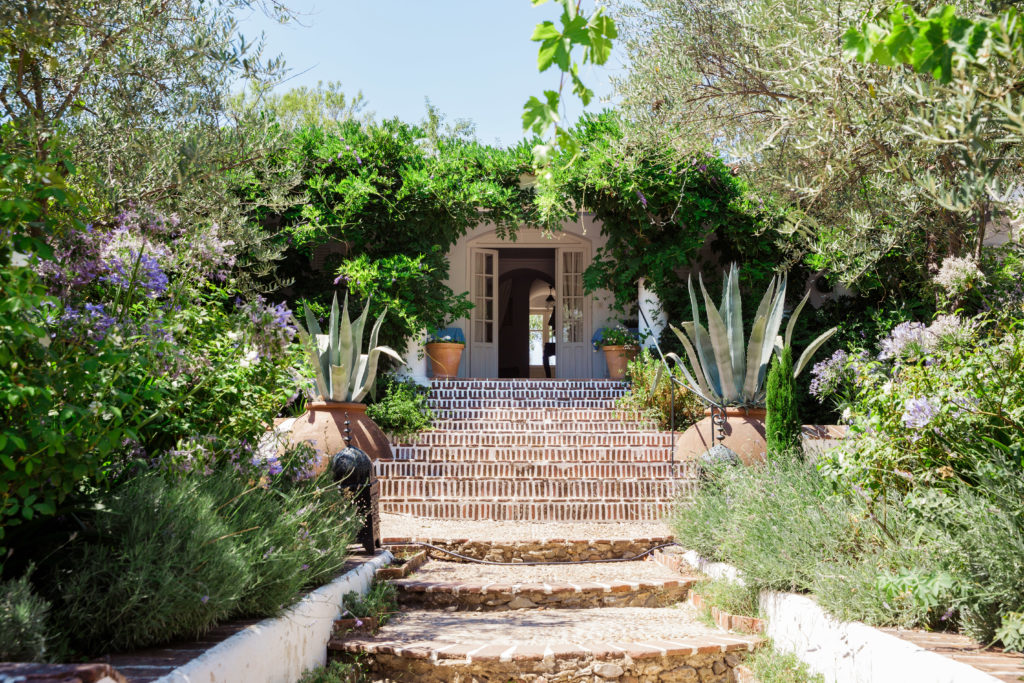
Wedding Planner
Do you wish to use a wedding planner? Consider:
- How much time you have
- How big is your wedding
- How much will the venue assist
- Do you speak Spanish or have someone who can accompany you who can
- Do you have time for multiple trips to Spain
If you don’t speak Spanish, a wedding planner is strongly advisable. (Also, if you’re struggling to find a venue, a wedding planner can be helpful to find one.)
Many of the bigger venues will work with wedding planners so ensure you’ve seen the weddings they’ve planned in the past and discuss exactly what you envisage. Ask them if they use set suppliers or if they have access to multiple ones. Ideally you don’t want to be limited to only one florist or hairdresser for instance.
If you’re getting married in a Catholic Church, check they have knowledge of all the requirements to marry an English couple.
Pick a Date
Ensure your bridal party and most important guests can make your date.
*Do note that during the summer Spanish weddings are traditionally held later in the day especially in places like Andalusia where it’s too hot in the summer months to be out in the midday heat. This is an important consideration if you have children coming to your wedding and whether it will be too late for them.
The Details
A very handy time to have a wedding planner but the main ones to think about are:
- Wedding Outfits: Bride & Groom, Bridal Party
- Photographer
- Videographer
- Make Up Artist
- Hairdresser
- Florist
- Food & Drink
- Wedding Cake
- Decorations/Tableware
- Band/Music/DJ
Attire Considerations
- Remember to consider the weather in Spain for the time of year you’re getting married; you don’t want to be too hot. (Grooms should always ensure they have a spare shirt or two to change into.)
- In Spain it’s traditional for the wedding guests to wear evening dress for evening weddings. For lunch-time weddings, only the sisters of the bride and groom wear long dresses. Of course it’s your wedding, you decide!
- If you’re getting married in a Church, it is worth checking if they have a specific dress code, some churches are particular about no bare shoulders.
Detail Considerations
- In terms of booking the photographer/videographer/make-up artist/hairdresser, be aware that the styles are very different in Spain compared to the UK. If you have the budget you might prefer to fly in your chosen photographer (or any of the above).
- For the hairdresser, it’s advisable for the bride to book a wedding hair consultation in the UK and then trial the Spanish hairdresser to ensure they can recreate her chosen style.
- The same applies for the bridal make-up or there is the option for the bride to take lessons and do her own.
- Regarding flowers, if you’re getting married in the heat, flowers will wilt very quickly. Do take the florist’s advice on which seasonal flowers work best and make sure the venue has somewhere cold to store them.
Photography: Andy Le Gresley Weddings @andylegresleyweddings
Food & Drink Considerations
- Different food is traditional to different regions of Spain. Paella from Valencia, tapas from the south. Research the food within your region and ensure you discuss and sample with your venue.
- Cava is traditionally served instead of champagne.
- The traditional Spanish wedding cake isn’t the traditional tiered English one, it’s more of a flan but of course they can cater to your wishes. Just make sure to sample a few!
Decorations/Tableware
- Discuss with your venue and see what they provide and if they decorate for you. Make sure you’re happy with every aspect.
Spanish Traditions to Include
As you’re getting married in Spain, do investigate what traditions are widely used across the country or specific to your region to add some Spanish flair to your wedding. You could consider:
- Las Arras: 13 gold coins traditionally presented to the bride by the groom in the ceremony (after they’ve been blessed by a priest). These are a symbol of unity; the groom signifying he is giving all he has to the bride and the bride accepting and putting her trust in him.
- Orange blossom is the traditional Spanish wedding flower
- Flamenco Dancing
- Spanish guitarist
*Note, bridesmaids and groomsmen aren’t a tradition in Spain, the important people are the father of the bride and the mother of the groom, the ‘padrinos’ (godparents). The ‘novios’ (bride and groom) arrive last at the wedding, the mother of the groom accompanies the groom and the father of the bride accompanies the bride. Of course you can keep all the English traditions but it’s worth knowing especially if you’re getting married in the church as the priest may not be familiar with them.
Finally
Remember you’re getting married in Spain, the land of mañana! Things might be a little slower but that’s part of the experience and serves as a great reminder to enjoy the process. Feliz boda! We hope you enjoyed this guide to Planning a Wedding in Spain
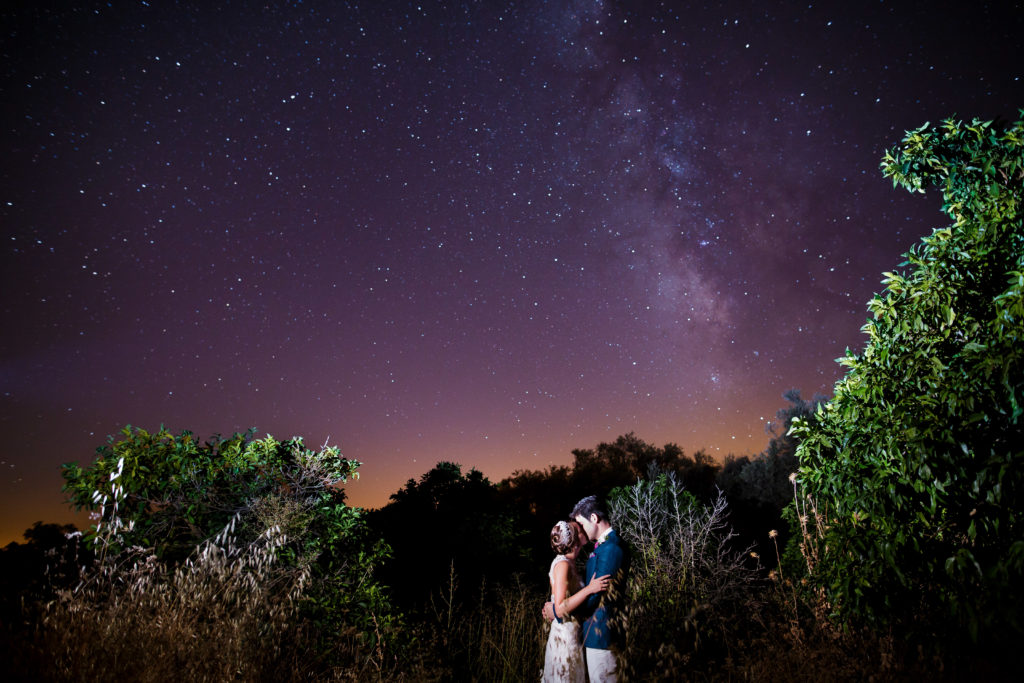
Related Articles: Planning a Wedding in Italy


